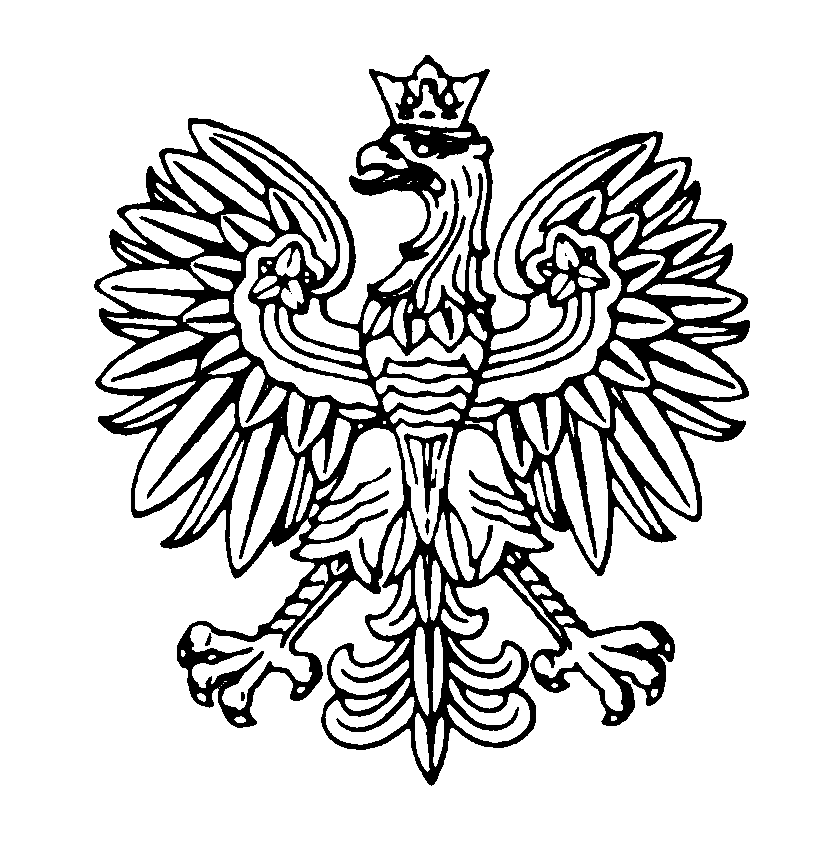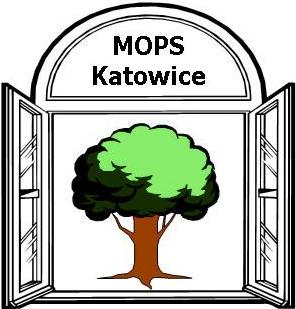3 RECOMMENDED STATEMENT FOR VALUES IN THE NEW ZEALAND
(IMPORTANT TIP THIS MOTION IS NOT RECOMMENDED FOR FILING04 – NORWEGIAN OIL AND GAS RECOMMENDED MODEL AGREEMENTS
100 TOP READS FOR KIDS RECOMMENDED BY MRS SNEDDON
1995 SUMMER READING FOR KIDS THESE ARE BOOKS RECOMMENDED
22-06-0242-39-0002-draft-recommended-practice
23 A CLASSIC SEMINARY EDUCATION MY RECOMMENDED READING LIST
Part Two: Recommended Statement for Values in the New Zealand Curriculum
Recommended Statement for Values in the New Zealand Curriculum
August 2005
V alues
are internalised sets of beliefs, or principles of behaviour, held by
individuals or groups and expressed in the way in which people think
and act. They are based on our cultural, philosophic and spiritual
traditions, and on current critical reflection, dialogue and debate.
alues
are internalised sets of beliefs, or principles of behaviour, held by
individuals or groups and expressed in the way in which people think
and act. They are based on our cultural, philosophic and spiritual
traditions, and on current critical reflection, dialogue and debate.
The Curriculum promotes and supports community values important to New Zealanders: diversity, community, excellence, inquiry, integrity, equity, respect and care and environmental sustainability.
These values are embedded in all aspects of the New Zealand Curriculum and are expressed in, and reinforced by: the principles and purposes of the curriculum; the key competencies; and the essential learning areas.
The New Zealand Curriculum enables students to develop knowledge about values; skills in working with values; and to commit to values important to New Zealanders and New Zealand society.
Through the curriculum students will gain knowledge of:
the values of the main cultural and institutional traditions of Aotearoa New Zealand and global society;
their own values and the values of others;
a range of values types such as aesthetic, moral, social, cultural and economic.
Through the curriculum students will develop their ability to:
express their own values;
examine with empathy the values of others;
critically analyse values and values-based actions;
discuss and negotiate values differences;
make ethical judgments and decisions and act on them.
Through the curriculum students will be supported to value:
Diversity – the unique cultures and heritages of Aotearoa New Zealand, and other cultures important in New Zealand society;
Community – quality relationships, generosity of spirit and participating for the common good;
Respect and care – of and for: self, others, beliefs, and human rights;
Equity - fairness, social justice and equal opportunities for all;
Integrity – honesty, responsibility, accountability and being ethical;
Environmental Sustainability – respect and care for the earth and it’s interrelating eco-systems.
Inquiry and curiosity - creative, critical and reflective thinking;
Excellence – achievement, perseverance, and resilience.
The values of the curriculum will be evident in the philosophy, organisation, and relationships of the curriculum, schools and classrooms. All members of school communities should strive to live and practice the values of the Curriculum. The specific ways in which values are expressed in the curriculum and culture of individual schools should be guided by the New Zealand Curriculum, and by dialogue between school and community.
The curriculum promotes and models values important to most New Zealanders. These values are those that society and communities are usually able to agree on as important to all in a diverse society and world. The values are broad and rich. As a result each value is in essence a values ‘cluster’ that has a range of values ideas and concepts within it. Some of these reflect the way different cultures and belief traditions express values. Table 1 below outlines some of these. The curriculum in different schools and learning areas will often reframe and add to these values in ways appropriate to their context.
T able
1 - Example Values Notions Associated with Each Value
able
1 - Example Values Notions Associated with Each Value
|
Value / Value Cluster |
Some associated values notions, concepts and ideas |
|
|
Diversity Rereketanga |
For example: Respect for others and their views, beliefs and cultures, dialogue, tolerance, inclusion, cultural safety, wairua, spirituality. |
|
|
Community Porihanga |
For example: Community, belonging, civic mindedness, connectedness, participation, family, whanau, peace, rangimarie, justice, negotiation, reconciliation, unity, solidarity, common good, kotahitanga, citizenship, cooperation, hospitality. |
|
|
Respect and Caring Manaaki / Awhi |
For example: Human dignity, personhood, individual rights, freedom, personal autonomy, human rights, compassion, aroha, consideration, concern, empathy, respect for self and others, self-esteem, self respect, self belief/self discipline, respect for property, mana, safety, physical, spiritual, mental and emotional wellbeing, hauora. |
|
|
|
|
|
|
|
|
|
|
|
|
|
|
|
|
|
|
|
|
|
|
Equity/Fairness Tika / Pono |
For example: Social Justice, fairness, equity (race, gender, age); equal opportunity. |
|
Integrity Ngakau tapatahi |
For example: Responsibility, accountability, reliability, commitment, honesty, truthfulness, trustworthy, ethical, doing right, moral courage. |
|
Environmental sustainability |
For example: Environment, harmony with nature/sustainability, kaitiakitanga. |
|
Inquiry/Curiosity Pokirehau/ Whakamatemate |
For example: Inquiry, curiosity, truth, wisdom, rangatiratanga, openmindedness, criticalmindedness flexible, adaptable, innovation, entrepreneurship, beauty, aesthetics, creativity. |
|
Excellence Hiranga |
For example: Achievement, excellence, doing your best, persevere, resilient, strive, competition. |
NOTE: These are examples only. Other values and values concepts considered important in the school and the community and that are consistent with eight community values can be added. Schools in discussion with local iwi may wish to add further Maori values into this table. Schools may also invite other cultural groups in their school community to nominate values to add to this table. Similarly learning areas will have particular values notions and concepts that they see as important and that they may wish to emphasise within the overall curriculum values framework.
Paul
Keown - 17/08/05.
Recommended
Statement for Values in the New Zealand Curriculum, August 2005 Page
Accessed from http://www.tki.org.nz/r/nzcurriculum/whats_happening/technology_e.php
© New Zealand Ministry of Education 2005 – copying restricted to use by New Zealand education sector
3 6 2 5 4 1 7 RECOMMENDED HOTELS
3 RECOMMENDED STATEMENT FOR VALUES IN THE NEW ZEALAND
5 SECTION 03 54 00 HYDRAULIC CEMENT UNDERLAYMENT RECOMMENDED
Tags: recommended statement, 17/08/05. recommended, values, statement, recommended, zealand
- FILOZOFSKI FAKULTET ODSJEK ZA INFORMACIJSKE ZNANOSTI AK GOD 200809
- MEMORANDUM TO PROFESSOR SUN FROM ADRIENNE BROCKHAUS ERICA EASH
- CAPITULO 6 ANUALIDADES SIMPLES ORDINARIAS 61 INTRODUCCIÓN EN MATEMÁTICA
- 1 JAKI JEST PODZIAŁ SPEKTROSKOPII WG A ZAKRESU DŁUGOŚCI
- CONTENT THEME ABRAHAM LINCOLN DEVELOPED BY ANN LUMM CONTEXTUAL
- TABLE OF CONTENTS OVERVIEW OF THE GUIDE INTRODUCTION THIS
- LESSON ELEMENT FILM EDITING INSTRUCTIONS AND ANSWERS
- 10 CAPÍTULO I 1 TEORÍA DE GRAFOS 11 GRAFOS
- the Ideal Muslim Wife by b Aisha Lemu a
- SCHOOL AGE DOCUMENTATION ANECDOTAL NOTES PHOTOS AND WORK SAMPLES
- SMART PACKAGING – INTELLIGENT PACKAGING FOR FOOD BEVERAGES PHARMACEUTICALS
- SLOVAK ORTHOPAEDIC AND TRAUMATOLOGIC SOCIETY FOOT AND ANKLE SECTION
- GESTIÓN JURIDICA GESTIÓN DEL PROCESO ADMINISTRATIVO DE COBRO COACTIVO
- 10 PRONUNCIAMIENTO Nº 4202013DSU ENTIDAD FUERZA AÉREA DEL PERÚ
- INDIVIDUALIZED LEARNING PLAN FOR REASONING THROUGH LANGUAGE ARTS TEACHER
- NATIONS UNIES HAUT COMMISSARIAT AUX DROITS DE L’HOMME UNITED
- 2018 REGLAMENT REGULADOR DEL CONSELL MUNICIPAL DE TERRITORI I
- COTILLÓN EN LA SALA TUNK (IRUN) LUGAR
- PUBLIC SERVICE ANNOUNCEMENTS WINTER STORMS SCRIPT ESTA ES UNA
- 2 COMISIÓN INTERAMERICANA DE DERECHOS HUMANOS OEASERLVII DOC 44
- HISTORIA DEL MUNDO CONTEMPORÁNEO 1° DE BACHILLERATO PROGRAMACIÓN MUESTRA
- ANSWER KEY FOR PROBLEM SET 3 ANALYTICAL PROBLEMS 1
- DIRECCIÓN NACIONAL DE ATENCIÓN DE PRIMER NIVEL EN SALUD
- ESCOLA D’ADULTS FONDO PREINSCRIPCIÓ CURS 2014 15 JUNY
- 2020 GOVERNOR’S SCHOLARS PROGRAM PARENTGUARDIAN PERMIT AND WAIVER
- ARBEITSHILFE ZUR QUALITÄTSSICHERUNG ARBEITSHILFE DER BUNDESAPOTHEKERKAMMER ZUR QUALITÄTSSICHERUNG
- NA TEMELJU ČLANKA 66 ZAKONA O POLJOPRIVREDI („NARODNE NOVINE“
- POWERPLUSWATERMARKOBJECT3 POSITION TITLE CLINICALCOUNSELLINGFORENSIC PSYCHOLOGIST CLINICALCOUNSELLINGFORENSIC PSYCHOLOGIST (REGISTRAR) CLASSIFICATION
- DOCUMENTO PROGRAMMATICO SULLA SICUREZZA AI SENSI DEL DLGS 19603
- DECLARACIÓN DE RÍO SOBRE EL MEDIO AMBIENTE Y EL
 REGULAMIN KLUBU INNOWATORA POSTANOWIENIA OGÓLNE § 1 KUB INNOWATORA
REGULAMIN KLUBU INNOWATORA POSTANOWIENIA OGÓLNE § 1 KUB INNOWATORACUESTIONARIO AGENTES NO ESTATALES EL RELATOR ESPECIAL AGRADECERÍA
 ERFASSUNGSBOGEN ABLÄUFE BITTE FÜLLEN SIE DIESE DATEI IN MICROSOFT
ERFASSUNGSBOGEN ABLÄUFE BITTE FÜLLEN SIE DIESE DATEI IN MICROSOFTLESOTHO (JOB(02)99ADD20 VEANSE EL DOCUMENTO GTBTW186 ANNEX I) A
 LISTA DE EJEMPLO DE VEHÍCULOS REPROGRAMABLES POR TOMA DE
LISTA DE EJEMPLO DE VEHÍCULOS REPROGRAMABLES POR TOMA DEIPAP –CURSO ANÁLISIS Y REDACCIÓN DE INSTRUMENTOS LEGALES 2015
KAJIAN PORNOGRAFI DALAM PANDANGAN AGAMA ISLAM MULYADI JURUSAN
 10 S YGN AKT VIA CA 134108 WYROK
10 S YGN AKT VIA CA 134108 WYROK PROGRAMA VACACIONS ESCOLA D´ESTIU PROGRAMA VACACIONES ESCUELA DE
PROGRAMA VACACIONS ESCOLA D´ESTIU PROGRAMA VACACIONES ESCUELA DE PROTOKOLL FÖRT VID ÅRSMÖTE MED SPF SENIORERNA GAMLETULL HALMSTAD
PROTOKOLL FÖRT VID ÅRSMÖTE MED SPF SENIORERNA GAMLETULL HALMSTAD DATA COLLECTION PLAN DEFINITIONPURPOSE USE OF THIS TOOL HELPS
DATA COLLECTION PLAN DEFINITIONPURPOSE USE OF THIS TOOL HELPS SOLICITUD DE VISADO NACIONAL IMPRESO GRATUITO FOTO 1
SOLICITUD DE VISADO NACIONAL IMPRESO GRATUITO FOTO 1 XXIV OLIMPÍADA BRASILEIRA DE MATEMÁTICA PRIMEIRA FASE –
XXIV OLIMPÍADA BRASILEIRA DE MATEMÁTICA PRIMEIRA FASE –ACTUALIDAD PROFESIONAL EN OFICINA DE FARMACIA TEODOMIRO HIDALGO SOTELO
7 ESSENTIAL LATIN GRAMMAR CLAUSES 1 INTRODUCTION TO CLAUSES
 WALLINGFORD CT SEPTEMBER 2018 FOR IMMEDIATE RELEASE 358 HALL
WALLINGFORD CT SEPTEMBER 2018 FOR IMMEDIATE RELEASE 358 HALL MIEJSKI OŚRODEK POMOCY SPOŁECZNEJ 40032 KATOWICE UL JAGIELLOŃSKA 17
MIEJSKI OŚRODEK POMOCY SPOŁECZNEJ 40032 KATOWICE UL JAGIELLOŃSKA 17JURISPRUDENCIA NACIONAL Y BUENAS PRÁCTICAS DE DERECHO INTERNO EN
ДЕПАРТАМЕНТ ОБРАЗОВАНИЯ ГОРОДА МОСКВЫ ГОСУДАРСТВЕННОЕ АВТОНОМНОЕ ОБРАЗОВАТЕЛЬНОЕ УЧРЕЖДЕНИЕ ВЫСШЕГО
 C HECKLIST 5 CONSTRUCT A BUILDING OR WORKS IN
C HECKLIST 5 CONSTRUCT A BUILDING OR WORKS IN